Does “The Narnia Code” Explain How the 7 Books Fit Together? | Talking Beasts
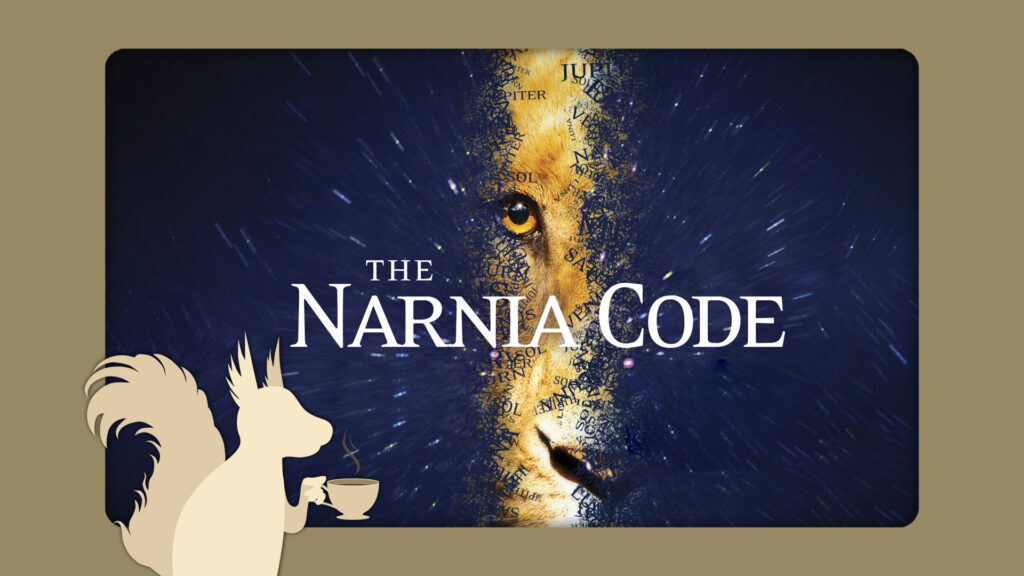
Dr. Michael Ward, a renowned C.S. Lewis scholar, believes that “C.S. Lewis deliberately constructed the Chronicles of Narnia out of the imagery of the seven heavens.” He first unveiled his theory in Planet Narnia (2008). Its success prompted a follow-up, The Narnia Code (2010), which is shorter and more accessible to a broader audience.
Is Dr. Ward’s theory correct? And if so, does it really matter? Listen below and post a comment.
Guest: David Bates, co-host of Pints with Jack: The C.S. Lewis Podcast and writer of RestlessPilgrim.net.
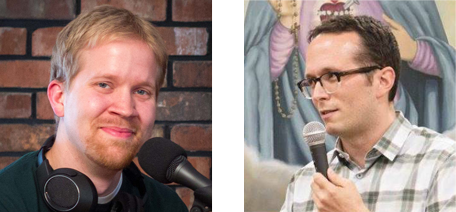
Support this podcast
and receive exclusive benefits
Listen:
Podcast: Play in new window | Embed

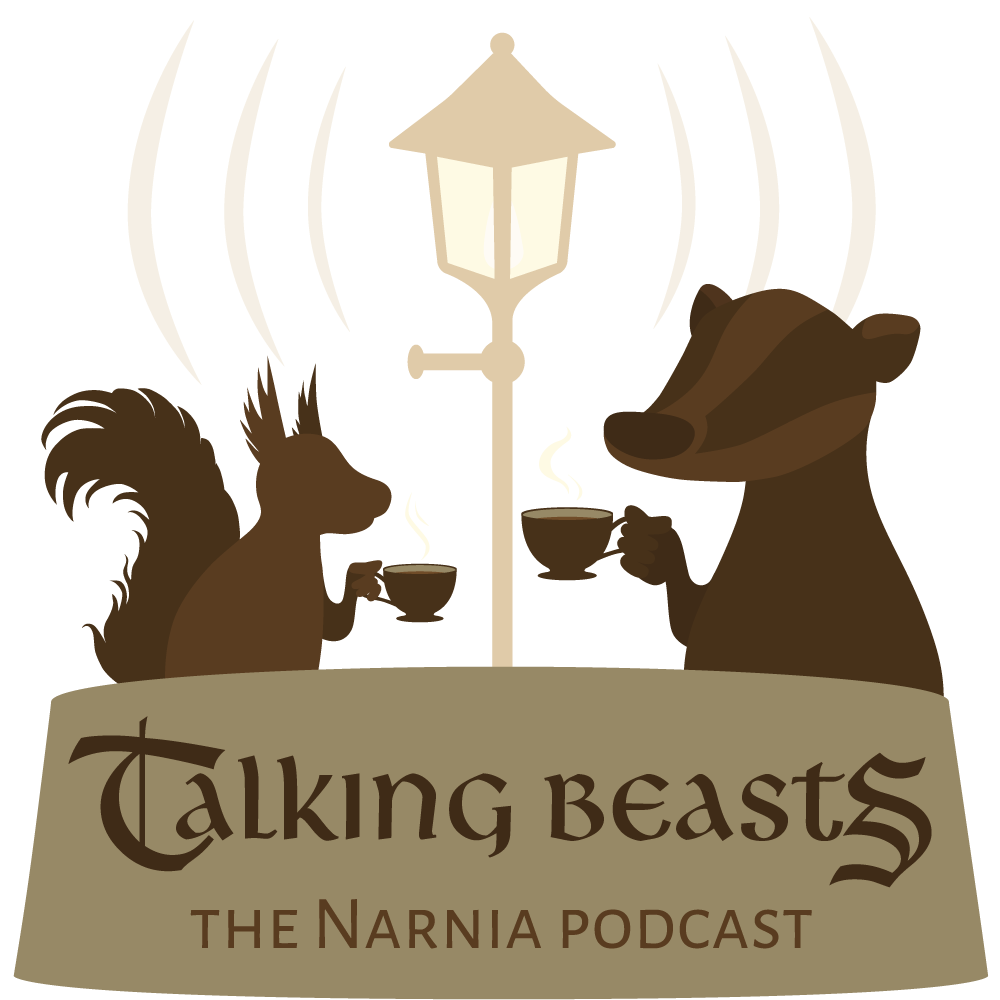
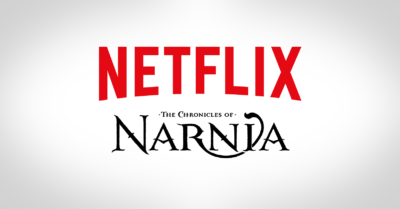


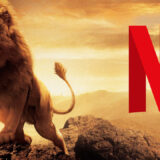
O.M.G.: What are the odds that at the moment I was thinking GlumPuddle ought to mention JOKER as an example HE ACTUALLY MENTIONS JOKER AS AN EXAMPLE in his podcast?! Sorry I just had to say that! Great discussion guys!
I definitely fit the description of the books’ target audience, a Narnia nerd. And I think it’s interesting to look at things which an author enjoyed and write about how they influenced that author’s own work, especially when it’s something, like medieval cosmology, which not a lot of modern people are super familiar with. But I don’t intend to read any of Michael Ward’s books about Narnia. His basic thesis, I believe, is solid as far as it goes. Lewis was interested in the Seven Heavens. There are seven Narnia books. Having each one correspond to the a different planet sounds likely enough. But the way he writes about the idea ironically makes it sound sillier than it would have sounded. The audio clips used in this episode really sum up what annoys me about this book or this book’s marketing anyway. (Saying it deserves to make headlines, that it’s “a genuine literary secret,” etc. While it might be a secret in that Lewis didn’t tell people about it, it’s not anyone was suppressing the idea. Anyone could do Michael Ward’s research and come to a similar conclusion.) That kind of posturing is a real turnoff for me.
I also feel like Ward misunderstands how reading and analysis work if he intends for his thesis to convince critics who dislike Narnia for being whimsical that it’s really carefully planned out. It’s unlikely that those critics were analyzing whether or not the books were well thought out while they were reading them the first time. How it works is first you read a book, then you like or dislike it and then you analyze why you have that opinion. It’s very unlikely that anyone who disliked Narnia for being “hodge podge” would automatically like it after reading Ward’s thesis. And there’s little reason they should since having each book correspond to a Heaven wouldn’t make the Narnia books good by itself. Putting careful thought and planning into a book series doesn’t make that series great.
While, like I said, Ward’s interpretation/theory is plausible, it’s also very subjective. That’s because it relies on definite opinions of each book’s atmosphere and not everyone is going to get the same “feel” from a book or love (or hate) it for the same reasons. For example, I don’t feel kingship is a bigger motif in LWW than in most of the other Narnia books. (Well, it’s a bigger motif than in The Silver Chair, I’ll grant that.) Pretty much ever Narnia book has a king or queen as a major character. I’d say that The Last Battle, because its main character is a king from start to finish rather than just being crowned at the climax, or HHB or Prince Caspian, because they contrast good kings with bad ones, have more of an atmosphere of kingliness than LWW. That doesn’t mean Ward was necessarily wrong about Lewis’ intentions. But it does make me feel that Ward’s books aren’t the Rosetta Stone/ Holy Grail for Narnia fans that he acts like they are.
If Ward would just present his interpretation as just that-an interpretation which fans could enjoy reading and debating about, I’d be a lot more friendly to his works. But he seems weirdly insistent on getting everyone to agree with him. (I can think of no other reason why he would bother using a stupid argument like “Aslan runs a lot in HHB but Jesus is never described as running.” Good grief! He clearly has better arguments in his own favor. Why not just stick with those?) And his fans, taking a page from him, have come across kind of similar. It’s like they’re desperate to convert everyone to their point of view. (I don’t think there’s anything wrong with wanting to convert everyone to your POV when it comes to things like religion and politics BTW. In fact, I consider it sensible. But “the Narnia Code” isn’t religious or political.) The Lewis (and Tolkien) magazine devoted an entire issue to Ward’s ideas. Sheesh! It’s like they’re this weird cult. (I don’t mean to say that all fans of the books are like this. I definitely wouldn’t describe either of the people on this podcast episode that way. Glumpuddle’s clearly a casual fan at most. A pretty skeptical fan really. To use a phrase from this episode, it’s a cumulative thing.)
I really believe Ward’s interpretation/theory has gotten way more attention that it deserves (two books, one for scholars and one laypeople, and a documentary!) and I don’t want to throw any more money at it.
You know what people should throw money at? Making Narniaweb ad-free! That’s one of my favorite phrases. Ad-free.
I feel like my comment above wasn’t as clear as it should have been. So I’m going to write this more concise comment summing it up.
It’s likely as not that Ward’s thesis is true. But I wish he’d say, “This is probably true” or “I believe this is what Lewis intended.” Instead he always says, “this is definitely what Lewis was doing” which strikes me as annoyingly arrogant. Maybe he feels (or initially felt) like this attitude was necessary to get people to take him seriously. But for me, it’s a turnoff. It makes what would otherwise be a reasonable argument sound like a crazy conspiracy theory. In my cynical moments, I suspect he adopts this attitude because crazy conspiracy theories sell more books than reasonable arguments.
While the Planet Narnia thesis isn’t a bad one per se, it’s the kind of theory that can never really be proven or disproven. That’s partly because it relies so much on atmosphere which isn’t entirely subjective but can be so very much. So I find it silly that Ward and his fans are so insistent on winning a debate which can’t be satisfactorily won or lost. Why not say it’s a fun idea and leave it at that?
I believe Michael Ward’s theory is entirely correct, mostly because Lewis had a lifelong fascination with classical astrology and believed it contained deep wisdom. Each Narnia book represents a phase in the life cycle of a soul, or a civilization. Lewis never divulged this plan because he didn’t want scholars and critics dissecting the Narnia books, the books were meant to be “enjoyed”. Also, you might know that “secrecy” is something of a feature in Jack’s life. So, IMHO, you don’t need to believe or explore “The Narnia Code” but it certainly has deepened my understanding of & love for these books.
I have read both of Ward’s books, found the arguments fairly persuasive. Given Jack Lewis’ known predilection for secrecy plus the places in his fiction *and* nonfiction where he refers to medieval-type astrology; i.e., Prince Caspian & his mentor studying Narnian starscape from castle walls and centaurs being especially adept at reading the stars, etc., it’s easy to see the possible outlines of such a story framework.
So, I’m with you, Fireberry
Okay so first, for those who (like me) had to google the rest of the corresponding books=planets and their meanings, I copy-pasted them here for reference:
Jupiter – The Lion, The Witch and the Wardrobe. Qualities: “kingliness; magnanimity; festal joy; tragic splendour; summer-time tranquillity”
Mars – Prince Caspian. Qualities: “vegetative growth in the month of March; military strength and knightly discipline; courage and orderliness or cruelty and lawlessness”
Sol – The Voyage of the Dawn Treader. Qualities: “wisdom; liberality; generosity; freedom; riches; enlightenment; opposition to greed”
Luna – The Silver Chair. Qualities: “envy; wateriness; confusion; lunacy; boundary between certainty and mutability; sponsor of hunting and wandering”
Mercury – The Horse and His Boy. Qualities: “swiftness; heraldry; skill in speech and learning; bright alacrity; ability to divide and recombine”
Venus – The Magician’s Nephew. Qualities: “sweetness; warmth; beauty; laughter; motherliness; sexuality; fertility; vitality; creativity”
Saturn – The Last Battle. Qualities: “pestilence, treachery, disaster, and death, or godly sorrow, penitence and contemplation”
Now as to how I feel about this theory? Well, for starters, I feel like the idea is strongest with VDT, SC, and LB (especially SC, you could probably use all the Luna words in a summary of SC). However, others like MN=Venus because it’s warm, creative, summery, etc seem weaker because the books 4/7 of the books have a spring/summer setting.
I’ll probably check out Planet Narnia at my library to further investigate, but until then I’d give the idea maybe 8/10. I definitely think Lewis was clever enough to do this, but it doesn’t really affect what I think of the books.
I guess at the end of the day, these theories cannot be dis/proven unless you ask the creators themselves (and then that leads to the good old death of the author debate:)
Jesus isn’t seen running but Aslan is? ASLAN MUST REPRESENT MERCURY!!! lol yes that part is rather ridiculous.
I think this theory should be treated like any other fan theory albeit a well thought out one. Don’t get me wrong, there are some great fan theories out there (Dumbledore Horcrux is one of my favorites) but I like you said it can’t be proven/disproven unless you asked the author. Personally I think IF the theory is true, Lewis didn’t really realize/lean into it until VDT (where they are literally sailing into the sun).
Yeah, I would also consider myself a Narnia nerd, but I don’t think I’ll be reading into this either. It’s entirely possible that Lewis used symbolism from the seven heavens, but he definitely doesn’t seem like the kind of writer that likes to pre-plan an outline. I remember reading something once where he said he didn’t know how LWW would end, but Aslan “came roaring in”. He also thought he was done after LWW, then VDT, but thankfully he ended up writing all 7. And take it from someone who’s written a lot of code, that’s not how you write code. When you start working on a program, you know what you want it to do. I want to write a calendar app, or a video app, or a Mario–style platform game. There is a plan. And I really don’t think Lewis had any particular plan in mind.
But that being said, I do think he would have reached many of the same conclusions as we do when we over-analyze it like this. He was a smart guy. I’m sure at some point he thought, “how is Christmas a thing in a world with no knowledge of Christ”. And I think he would have come up with the idea that you mentioned (and I had and probably others thought of before you did) about King Frank and Queen Helen introducing the holiday. Throw in the fact that Father Christmas exists in that world, and it’s not a plot-hole at all. I think there’s a lot of stuff like that, little details that make a lot more sense because of the Magician’s Nephew. But since he didn’t plan it beforehand, the whole “Narnia Code” idea just doesn’t sound possible.
I remember thinking the same thing about Planet Narnia when I read it about ten years ago. I never thought that Narnia had any direct connection with astrology and the planets. So I never cared much for the book. Hopefully The Narnia Code is better (I have never read that one), but if it is speculation it probably won’t interest me very much.
I would recommend “Reading with the Heart: The Way into Narnia” by Peter J. Schakel. It explores other things like relating the seasons to the themes in the Narnia books. The author was my professor many years ago. I took his C. S. Lewis course in college and really liked it, There is a newer edition of the book which has some different content. It is “The Way into Narnia”, and it explores the relationship of Narnia to our world. Perhaps someone else here has read it. I think both editions of the books are well worth reading.
The Lewis/Tolkien magazine I mentioned is called An Unexpected Journal BTW. So sorry I accidentally left the name I out. That’s what I get for writing such long winded comments. You can read it online if you like.
Really interesting podcast, thank you, Glumpuddle and David!
I had heard about The Narnia Code / Planet Narnia before; I openly admit I haven’t read either book, so I can’t comment from full knowledge of the subject. But after hearing you guys discuss it in some detail, I must say my verdict on the Narnia Code thesis is still the same as my instant reaction when I first heard about it: pretty much complete garbage.
I’m glad you two went into some of the intricacies of it and I can certainly agree it’s likely that Lewis was *influenced* to quite some extent by the ideas and symbolism in medieval astronomy and cosmology. But to suggest that he actually had an underlying plan all along, with each one of the seven books based specifically on a particular planet and its qualities… seriously, has Michael Ward never read anything that Lewis himself had to say about the way he wrote the books???
As far as I’m aware (though I’m certainly not a professional Lewis scholar), Lewis was always quite clear, whenever this question came up, that he had no overall scheme in mind when he started writing the Narnia series and didn’t even decide until he was partway through writing the books that there would be seven of them. He said straight out (I can’t remember where, sorry) that he was “quite sure”, when he wrote VDT, that it would be “the last”, but it wasn’t to be.
I’m aware he wrote the remaining four books in quick succession after that and seems to have decided at about that point that there would be seven in total, but the point is that he was at least a couple of years into writing the series and had already written the first three books BEFORE he decided on seven as the definite final number of books. So unless we assume that Lewis somehow subconsciously wove the motifs of Jupiter, Mars and the Sun into LWW, PC and VDT respectively, and THEN somehow “realised” what he was doing and hit on having seven books for the seven planets — which is a very, very, very long bow to draw… the entire Planet Narnia / Narnia code thesis falls apart.
Seriously — does Michael Ward deal with that in his books? Have no critics of his thesis brought it up?
Also, the idea that the supposed planetary scheme is the “secret” factor that binds all the Narnia books together and makes them make sense (and until one understands it, there’s something “missing”)… further garbage. The obvious element that binds all the books together is the themes of Christianity that they each explore in different ways. It’s the figure of Aslan in each one, the only character who features in every single one of the seven Chronicles. There’s no need for any other “hidden code” that somehow “explains” what Lewis was getting at in each book. And again, although I haven’t read either of Ward’s books, I’m suspecting what Glumpuddle alluded to in the podcast: there could be a fair bit of cherry-picking here to make the supposed evidence fit Ward’s thesis.
As I can see other commenters here have already said, there’s a huge amount of subjectivity involved for a start. I would propose that the theme of kingship (Jupiter) is far stronger in PC than in LWW. Not to mention much more outward “joviality with the romp with Bacchus and Silenus and the Maenads — a far more exuberant expression of jollity than Father Christmas (repeatedly described as “solemn”) in LWW!! (Yes, I’ve got the obvious piece by Gustav Holst stuck in my head now too.)
Mars, as the god of war, could be seen as a theme in PC, but fits The Last Battle equally well, that being the book with the most graphic warfare in it — except that has to be saved for Saturn, of course, as Father Time bringing the end of the world. Oh yes, on that note, the “smoking gun” that Lewis originally had the sleeping giant in SC named as the god Saturn? One could easily guessed he changed that on realising that young readers wouldn’t get the reference and “Father Time” is a much more obvious English name that they could then understand, three books later, as the figure who ends the world.
Father Christmas as an incongruity? Don’t forget, LWW was the first book Lewis wrote in the series and he was still “finding his feet” as to what kind of world he was creating. I’ve always thought it’s significant that Father Christmas and Christmas itself are never alluded to again in any of the other books. I would guess Lewis took all the criticism to heart (though not so much that he felt led to change the first book before it was published) and moved away, after that, from having such obvious characters from our own world’s mythology turn up so incongruously in Narnia. (Bacchus et al. being an exception, but that was the second book; I’m pretty sure after that he never has any other earthly mythical figures appear in Narnia, at least not under their usual names. Again, that could be why he decided to leave out the name Saturn in favour of Father Time.)
And as for Lewis being “secretive” in his private life, which he certainly was… again, a very long bow to draw to suggest that that means he encoded a secret meaning into the Narnia books. In fact, from all I’ve read about him, Lewis had very little patience with people who read supposedly hidden meanings into his and others’ writings, when in reality the actual author had no such things in mind.
In short, if Lewis himself left no clear evidence of a deliberate “planetary” scheme behind the construction of the seven Narnia books — and it does seem virtually all of this thesis was cobbled together out of very circumstantial “evidence” infused with Michael Ward’s own imagination — then the Narnia Code theory is hogwash. It’s an interesting way of reading the books and worth looking into with the thought of “could this be true?”, but I can only conclude the weight of genuine evidence is that Lewis never had any such scheme in mind as he was writing. Therefore, it is bosh.
End of story.
I’ve got “The Way into Narnia” and really enjoyed it — I agree, well worth reading and I’ll have to read it again some time soon. That must have been excellent, Larry, to have done a course with the author!
I’d have to agree. The whole “secrecy” bit seems more like Ward’s method of dressing up his theory to seem more edgy, as if it was previously privileged information. The most I could give him is that Lewis maybe threw in a slight “planet scheme” towards the end- mainly with Father Time/Saturn; nothing else in the books suggests this underlying scheme to be an influence with the other stories.
Furthermore, Lewis wasn’t envisioning a 7 book series to begin with. He just stopped at 7 because, in his own words (I think), “seven seemed like a good number.”
I think this is mainly just a conspiracy theory. And while its implications might make for an interesting re-reading of the series, it is still kind of pointless. Ward pretty much just categorizes the feel of each book according to a corresponding “heaven,” so looking for themes in the books that Ward and every other Narnia reader were already aware of doesn’t seem to serve much purpose or have the potential to fundamentally change the way we see the stories.
As for the argument that the theory helps to make the stories seem more “intelligent” to people who scoff at them as children’s books, I would say that simply being able to say “look, all the various wonders and sensibilities of the books follow a sophisticated pattern, complete with classical references!” probably wouldn’t do that much for most people. The Narnia books are what they are; slapping intellectual labels on them doesn’t change their style or their sense of atmosphere, and these are the things for which most people love the books.
This theory isn’t really worth the time it would take to figure out what it even means for the reader. Its thesis doesn’t go far beyond “C.S. Lewis was a clever man!”…. but any Narnia fan would probably be aware of that already. (LOL).
There’s a lot of theories out there all trying to be the next “hot take,” and this is no exception imo. There’s a new theory put forward every week about who REALLY killed JFK, or the REAL origins of Christmas, etc, and they almost always start out with phrases like “what you’re not supposed to know!” and “the dark truth” or “what no one told you about….” When it boils down to it, it’s mostly about money. People want to sell exciting information, regardless of how well it’s supported.
As for Ward, I wouldn’t say he’s “all about money,” but I think that the further propagation of his ideas rests solely on its ability to intrigue the readers. And that is usually the motive behind what we call clickbait.
P.S.- Jesus doesn’t run but Aslan does??? What kind of madness is that?
It was one of my most enjoyable classes at Hope College back in the 1970’s! 🙂
I agree that the whole “Jesus never ran” thing is a facepalm-worthy argument. But to be fair, it sounds like Michael Ward only said that once and it’s not a major prop of his position. It sounds like there are good arguments for Ward’s thesis (The people who read the book seem to like it after all) but he’s so eager to get everyone to agree with him that he uses every single argument he can think of, good, bad, and indifferent.
It’s a funny world we live in.
The “running” thing was just one sentence and was not one of his major arguments or anything. I just used it as a example of how Dr. Ward seems prone to exaggerating and stretching. It makes me look at those areas of his research where I am totally out of my depth (90% of the book) with some suspicion.
I get that the running argument is just another bit of ammo for Ward’s theory- the reason I call it madness is because it just seems like a rather desperate use of bad logic which, as you said, causes one to view the rest of the arguments with some suspicion. There are better arguments that he’s made, but that to me only highlights the nonsense of this one.
I’ve just been taking a look at the opening chapter of Planet Narnia, which comes up in the “Look inside” feature on Amazon… let’s just say, even before Ward goes into any extensive arguments, his whole attitude has me shaking my head. He’s so adamantly insistent that his theory is valid and brilliant and is the true “hidden key” that everyone else has missed all along, that he makes quite a lot of really, really shaky assumptions in support of that “key” existing in the first place, none of which hold up to serious scrutiny. Here’s one quote:
“I am aware, of course, that Lewis had a low view of literary critics who attempted to discover inner meanings in his works; but I think his view of them was low because they missed their target, not because there was no target to aim for. The arguments presented in this book have sufficient explanatory power, I trust, to be regarded as a hit.”
To me, that pretty transparently translates as:
“C.S. Lewis disapproved of everyone else whoever tried to look for hidden meanings in his works, but of course that was only because none of them were right, not because there weren’t any such hidden meanings at all. MY theory of hidden meanings in Narnia, on the other hand, IS right and I’m sure you’ll all agree by the time you’ve finished reading it.”
And then he goes on to admit that although Lewis did have a number of close friends to whom he was frank and open about a lot of things, he never confided to them about anything like this “hidden key” to Narnia, except for maybe one or two things that could be taken as hints. BUT Lewis COULD be really secretive and private about some things (like him omitting a lot of details of his personal life in Surprised by Joy — even though his close friends knew he’d done so — or using pseudonyms occasionally for some of his works), so therefore we can’t rule out that there was a secret scheme behind Narnia that he never told anyone about. And we have evidence that he even sometimes LIED! I quote Ward again:
“The clearest evidence that he was not always Washingtonian in his candour [i.e. that he lied sometimes] is the occasion when he deliberately misled a fox hunt: ‘He cupped his hands and shouted to the first riders: “Hallo, yoicks, gone that way,” and pointed to the direction opposite to the one the fox had taken. The whole hunt followed his directions.'”
… I’m sorry, but that just had me shrieking with derision. Lewis — who loved animals and obviously detested hunting — misleading a fox hunt is “evidence” that he wasn’t always completely honest and therefore we can believe he had a secret scheme behind the Narnia books which he revealed to no-one?! This is just bonkers (and a clear misunderstanding of Lewis’s sense of humour, too).
Honestly — even after a few pages of this, there is no way I can take Professor Ward seriously. I have a university degree myself and if I’d ever submitted an essay with as ridiculously flimsy a basis as the one he gives here for believing that Lewis had a secret scheme and Ward has just discovered it, I would be surprised to get a pass grade, let alone a distinction!!! Absolutely unbelievable.
(I COULD buy or borrow the whole book and read it through to dig into Ward’s theory in more detail. But after seeing for sure how dodgy his whole premise is, I really don’t think I have the stomach for it, sorry.)
😉 Speaking of which, do you know how I got these scars…
JFG II No. You want know why I don’t?
BECAUSE I’M BATMAN
Devin Brown quotes Douglas Gresham:
In a recent interview, Lewis’s stepson Douglas Gresham stated, “A very nice man and a friend of mine, Michael Ward, has recently written and published a book all about how the Narnian Chronicles are all based on the seven planets of the medieval astronomical system. I like Michael enormously, but I think his book is nonsense.” Gresham further suggested, “People do go out of their way to try to find all kinds of hidden meanings. We seem to be a species that loves conspiracy theories.” Paul Ford, one of the world’s great Narnia scholars, has called the theory “earnest but implausible.”
I follow Mr Gresham in preference to the latest scholarly idea.
https://www.cslewis.com/planet-narnia-spin-spun-out/
I thought you were going to say “No, but I know how you got THESE”
Thanks for covering this complicated subject. I love the breadth and depth of this podcast and the way you introduce Lewis fans to so much that is going on beyond just the films.
I do wish you’d broken down the seven heaven’s correlation to the seven books much further. You focus a lot on the early chapters of Planet Narnia and don’t really get into the meat of the correlations.
Regarding not getting through Planet Narnia, I totally understand the difficulty. I started and stopped more than once myself. The chapters addressing the “problem” are rough sailing, as Ward seems to be going through his dissertation literature review and setting up what all the other critics have said about Narnia–and we disagree with most of it.. I strongly encourage you to go back and read the chapters on each planet, even if you have read “The Narnia Code”. (Incidentally, I’m 95% sure the “Code” title, which I agree is unfortunate, was chosen by the publishers, not Dr. Ward, but clearly Dr. Ward has run with it).
I’m disappointed you suggest that Ward strove for a “mathematical” correlation. One of his followup articles from Planet Narnia was an essay called “Quality Not Quantity” where he explains a mathematical correlation is exactly NOT what he’s going for.
Regarding having to take Ward’s word on the medieval views of the cosmos, you don’t have to. You can read “The Heavens” chapter from Lewis’s “Discarded Image” to see what Lewis thought on the subject. You can also read “The Planets” poem (as I’m sure you have). As you both mention, greater attention to these texts is hopefully one of the benefits that come from the popularization of the Narnia Code thesis.
Glumpuddle, I think you are exactly right when you describe how Ward’s thesis offers new language with which to describe what you were already getting out of Narnia. It’s Lewis’s great distinction between “contemplation” and “enjoyment.” You’ve been enjoying these qualities in Narnia the whole time you were reading and Ward’s thesis may not meaningful effect your enjoyment as you read. But it will effect how you contemplate your enjoyment, which helps us appreciate Lewis more as the great writer that he is.
David Bates was a fantastic guest and I hope you have him back on. I particularly appreciate his referring to the “Ransom” or “Cosmic Trilogy” rather than the “Space Trilogy” (how anyone who has read OSP can call it the “Space Trilogy” is beyond me).
I actually consider that trilogy to be an interesting failure. So I’m not sure if encouraging people to read it is doing Lewis any favors. LOL.
If you’d care to talk about this topic more (I understand if you don’t), it’d be nice if you could expound on the idea that “you’ve been enjoying these qualities in Narnia the whole time you were reading.” Why would someone “enjoy” the (alleged) fact that Lewis sought to have each book in the series correspond to one of the seven heavens? I’d use to word “admire” in place of your “enjoy.” It was clever of Lewis to include references to things he personally enjoyed in his work. I’d love to do things like in my own writing though I haven’t found a way to do so yet. Kudos to Lewis for (supposedly) finding a way!
But that by itself wouldn’t make the books enjoyable or Lewis a “great author.” I mean it would make him a clever author but there’s a difference between cleverness and greatness. (Actually, cleverness alone can make a great work if it’s, say, a comedy. But that doesn’t apply to Narnia.) Another author could conceivably have used the seven heavens in the same way and still ended up with a lame series.
P.S.
I’m sorry if all my “allegedly” and “supposedly” strikes people as overly cynical. I actually wouldn’t be surprised if Ward’s speculation about Lewis’ intentions were true. I’ll even say that if I firmly decided it were, it would add to my appreciation for Lewis’ talent though not at all in the way Ward thinks it would. 😉 Since Lewis to a large extent failed at creating the specific atmospheres he was going for, to me it would be a great example of a great author making something great even if it isn’t the exact great thing he wanted to make. (Phew! That’s a lot of greats.)
Courtenay writes “As far as I’m aware (though I’m certainly not a professional Lewis scholar), Lewis was always quite clear, whenever this question came up, that he had no overall scheme in mind when he started writing the Narnia series and didn’t even decide until he was partway through writing the books that there would be seven of them [….] Seriously — does Michael Ward deal with that in his books? Have no critics of his thesis brought it up?”
Yes, Ward does deal with this in his books. Ward is not claiming that Lewis had this plan in mind from the very start. Rather, Ward’s claim is that it was “an incremental plan, for we know that he did not have the whole series of seven books mapped out when he began to write the first” (Planet Narnia, p. 5).
Ward writes that Lewis “had not originally conceived the idea of a series that would enable him to portray all seven planets [….] but at some point after commencing The Horse and His Boy he resolved to treat all seven planets” (page 222). See chapter 10 of Planet Narnia for more details. Ward also addresses this question in a short note in Mythlore vol. 31, no. 3 (2013), https://dc.swosu.edu/mythlore/vol31/iss3/8/
Ward isn’t claiming that Lewis started writing the first book with a plan for seven books based on the seven planets. Lewis wrote one book and modeled it on Jovial imagery. An then he wrote another, using Martial imagery. And then another, and so on. There are problems with Ward’s theory, but at least let’s be clear about what his theory is.
Hello,
I really enjoy the podcast, and was doing some catching up. I think that Lewis probably dipped into the medieval cosmology of the seven heavens from time to time in writing the Narnia series, which is really interesting.
I think framing it as a “code” is problematic, since the Narnia series isn’t some kind of enigmatic narrative that needs “cracking” . Also, applying the “code” doesn’t reveal any kind of actual “message”.
Calling his book “Medieval Cosmology in the Chronicles of Narnia” would have been fine, but would have sold fewer books. I think the spin exploits Dr. Ward’s observations for marketing purposes, which is what people don’t like.
It’s as though somebody came and looked at the colour of each of the rooms in your house, and then discovered that the paint was all purchased from the same store, and so concluded that your house was a secret advertisement for the paint store.
Sincerely,
James
I am the first to have done a masters thesis on PN. And with Michael himself as my supervisor. I read almost everything Lewis wrote in preparation for it including the OHEL in its entirety. Even visited the Wade Center and ended up writing a book with Michael on the subject of the cosmos, inspired in part by Lewis’s vision. If you are going to take a shot at Ward’s thesis, you owe it as careful a study of Lewis and as detailed an analysis as Ward has given it. In other words, specific counter examples that are not mere imaginative speculation on your part. Take apart and dissect the references throughout Narnia as Ward does. Especially noteworthy is Lewis’s idea of the kappa element and the necessity of translating one’s ideas for a wider audience.
Lewis’s imagination is entirely consistent throughout his apologetic, professional, and creative writing. There are deep connecting th threads throught all of his work.
Just calling PN nonsense is not a persuasive counter argument.
Very interesting episode, and while I have not read the entire book from the portions you covered it sounds like I agree that there could well be something to the theory of the seven heavens and planetary elements relating to Narnia, but the specificity with which Ward claims this applies does seem to be something to take with a grain of salt.
For example, in the episode it is brought up that the chess piece which Edmund finds in the ruins of Cair Paravel is a solid gold knight with one ruby eye where two used to be, which fits in with the theme of the book being a martial one which aligns with the planet Mars. However, in Dawn Treader Lewis describes Reepicheep and Lucy as playing many games of chess on board the ship, and that Reepicheep was not a great chess player because he so often brought his knights out quickly to attack in reckless fashion much as the ever undaunted mouse would do in a real battle. As far as I can recall, the knight is the only chess piece specifically named in the books, so I would tend to think that ‘C.S. Lewis was particularly interested in the knight due to his interest in chivalry and the culture of medieval warriors’ is as plausible an explanation as ‘the detail of the knight in Prince Caspian is included because the book aligns to the planet Mars and all things martial.’ It’s definitely an interesting lens to use in re-reading the Chronicles, and I will be open to hearing more details and examining how well this notion truly fits with the seven books.
I really enjoyed reading about Narnia code and 7 books